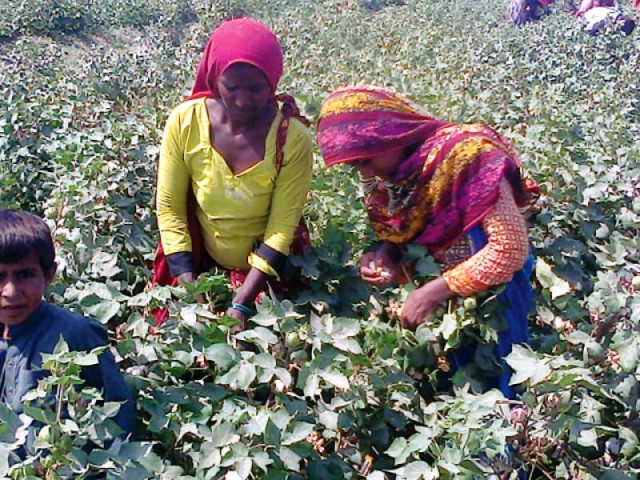Female farmers denied worker status
64 million women working in the informal sector are paid 40 per cent less than men

In a country where traditional gender roles still expect women’s lives to revolve around dirty dishes and diapers, participating in paid work outside the home is a challenge for women of all socio-economic backgrounds. However, the struggle of balancing domestic duties with work responsibilities is significantly more convoluted for female farmers in the country given the absence of any social security or welfare benefits.
In a few days’ time, both the federal and provincial governments will be presenting the budget for the upcoming fiscal year 2024-25, which will purportedly propose salary raises and other incentives for formal employees working in the public and private sectors. Regrettably, the new budget failed to take notice of the living and financial conditions of millions of female farmers, who are deprived of fundamental worker’s rights like job security, health benefits and pay parity.
One such woman was 35-year-old Rehmat Bibi, a farmer from a border village in Lahore. Rehmat, who has been engaged in agricultural work since the past several years, contributes only Rs500 per day to her household income by harvesting vegetables and wheat, picking cotton, breaking maize kilns, taking care of cattle and collecting their dung all throughout the day.
“Apart from the fact that our earnings are inconsistent, we receive no healthcare benefits. If we ever get sick, we have to get the treatment done from our own pockets. Our work requires us to bend down in the fields for long periods of time during the sweltering weather. Once we return home, our fatigue makes it hard for us to even stand upright,” tearfully revealed Rehmat.
Read:Women farmers rally for fair treatment
Like Rehmat Bibi, approximately 64 million other women living in village areas across the country share the same woes and worries expressed by Rehmat since their contributions to the agricultural, livestock and brick kiln sectors are highly undervalued in comparison to men, and they also do not receive any social security or endowment fund facilities to protect their futures.
According to Dr Iram Rabab, Head of the Women Development Centre at the University of Home Economics, despite women earning the title of founder of agriculture as a result of their contributions to the informal sector, female farmers in the country are in a state of despondency. “Female farmers are neither recognized as labourers nor do they get the rightful compensation for the work. Most of the time, they are forced into labour,” highlighted Dr Rabab.
“Moreover, women working in the informal sector are paid 40 per cent less than men, while their working hours are also four to six hours more. They struggle to balance their domestic chores with their farm work especially since their social environment is not favourable for facilitating their agricultural participation. Issues like harassment are also a major challenge for many of them,” expanded Aima Mahmood, General Secretary of the Pakistan Workers Confederation, who further added that the ‘Katta Farba’ and “Murghi Paal” programmes for women launched in 2018, were also scrapped by the incoming government.
Speaking to the Express Tribune on the matter, Syeda Kulsoom Hai, Director General of the Punjab Labour Department conceded to the views that an endowment fund must be set up for female workers in the informal sector. “The welfare of all workers is one of the priorities of the government. During the tenure of the caretaker government, the minimum wage of workers was increased by 25 per cent to Rs32,000 per month. We will also take steps to expand the dataset on informal workers,” said Hai.


















COMMENTS
Comments are moderated and generally will be posted if they are on-topic and not abusive.
For more information, please see our Comments FAQ